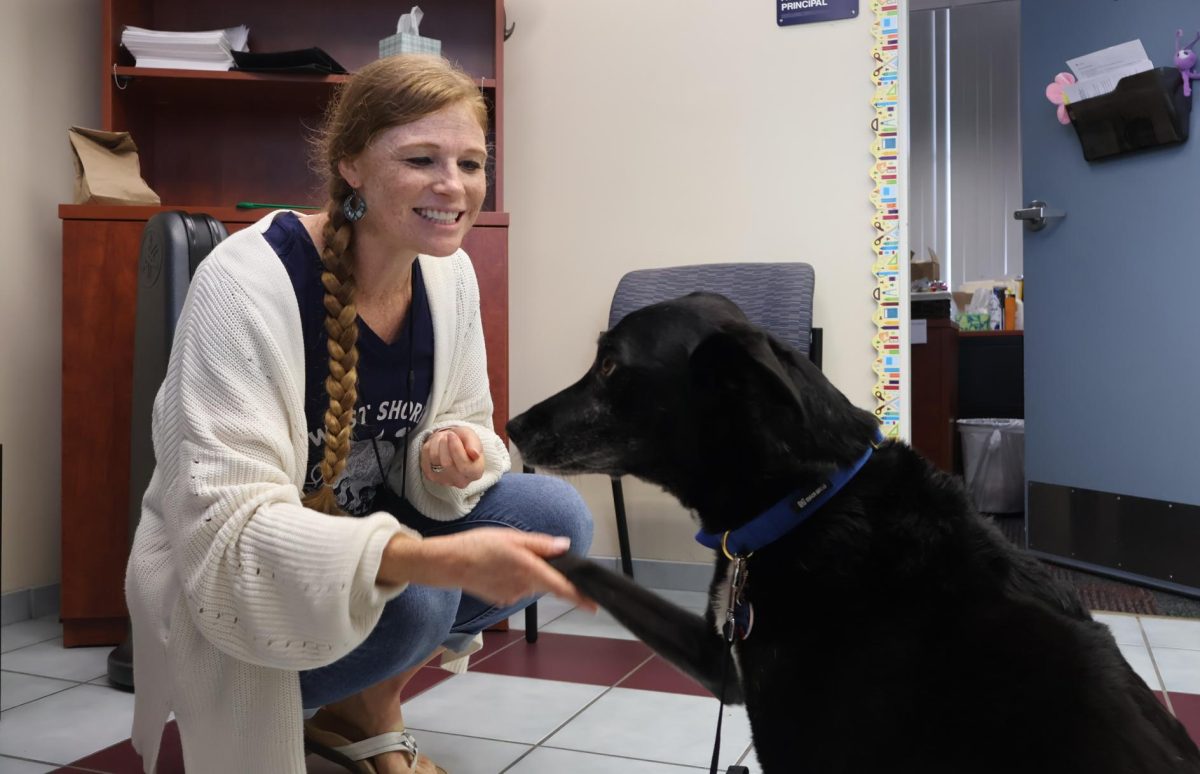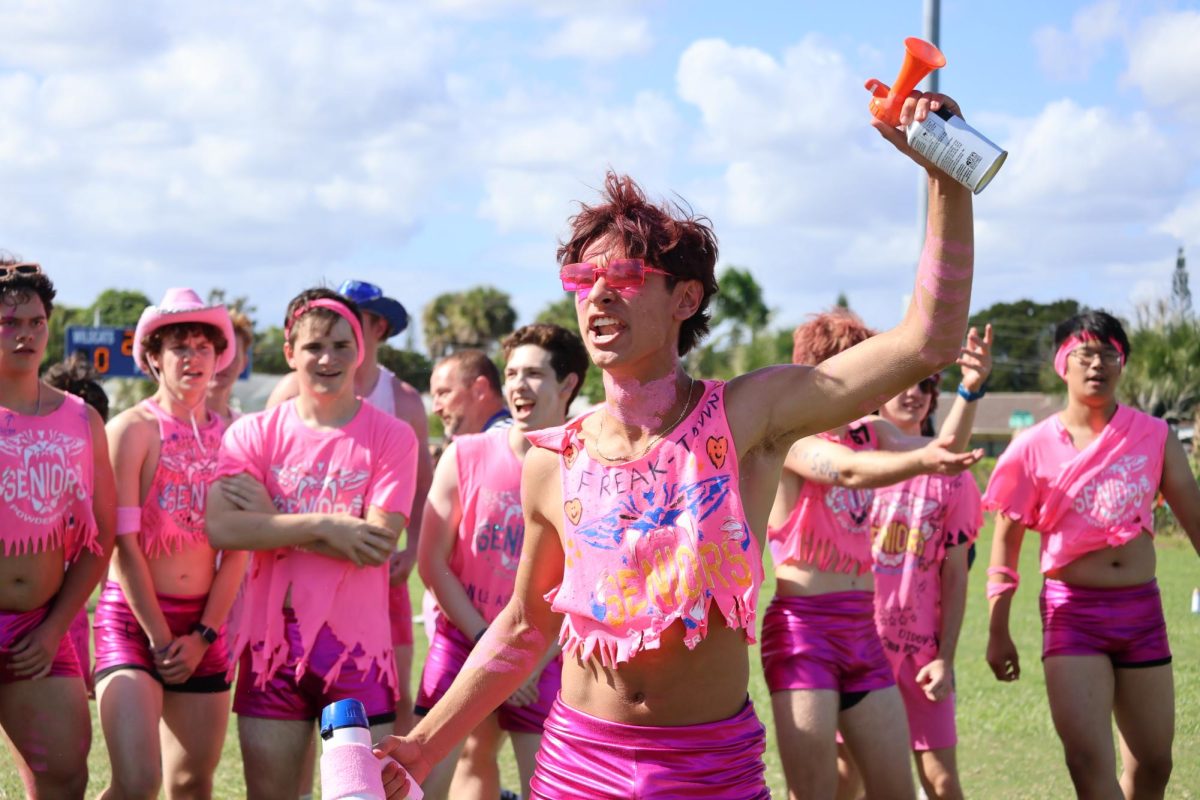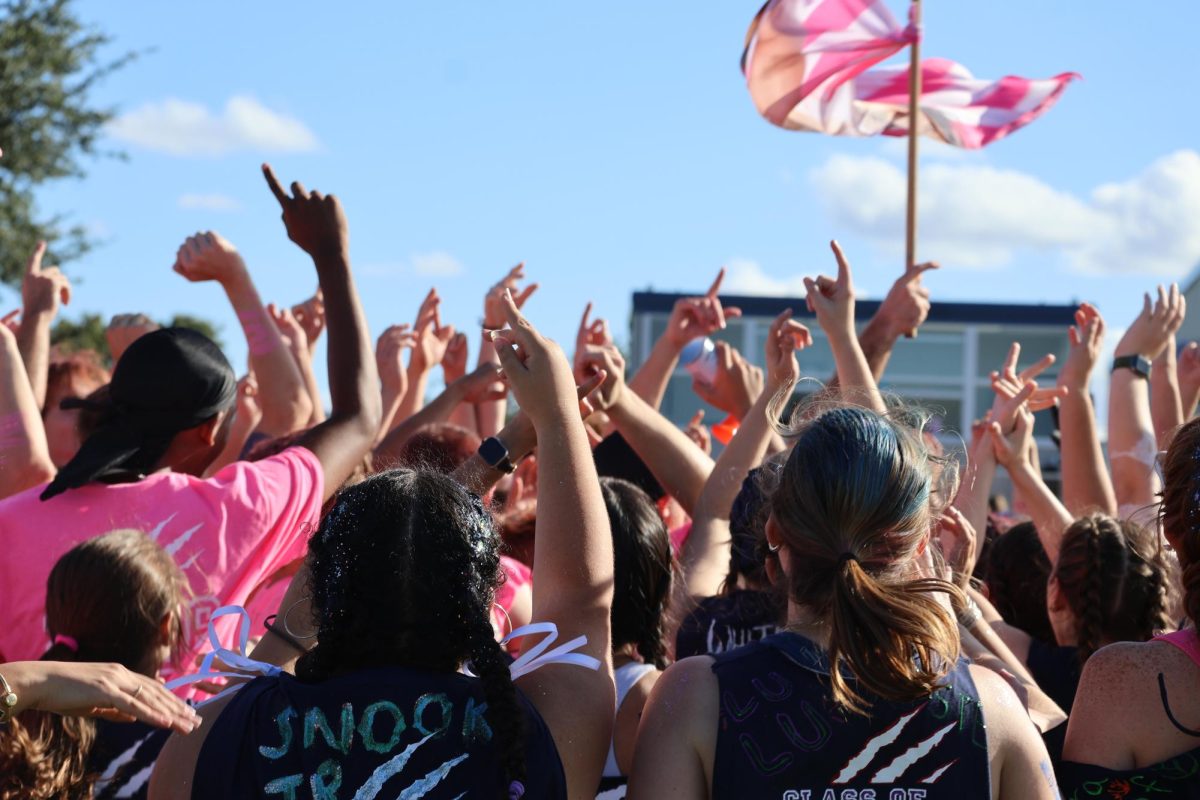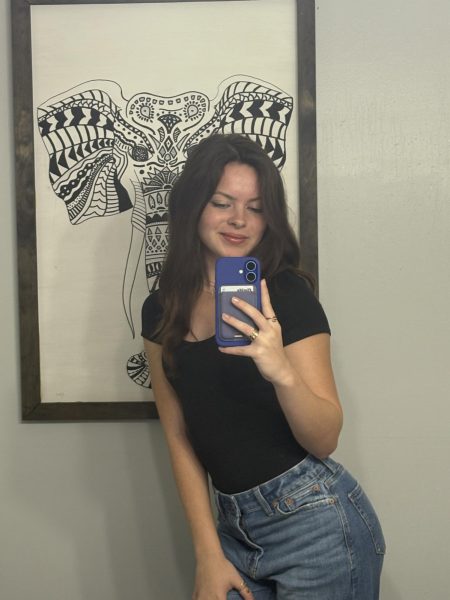In American culture, 18 is an age to remember. It’s the year that marks the official end of a stay at the kid’s table, symbolizing the spreading of wings and the flight from the nest. It brings the transition into adulthood and everything that comes with it—including voting. This year’s election is no small, local one though—according to senior Sydney Cooper, it’s a presidential election that could be crucial to the future of the United States of America, one in which every vote counts.
“I am 100% planning to vote,” Cooper said. “I’m voting for Kamala Harris. I believe that she is the best candidate, and I’ve always been very democratic, as is my whole family, so I think her values really align with mine. I’m also not the biggest fan of [Donald Trump], nor his policies, so I will indeed be voting blue.”
Kamala Harris has adapted her policies to be more moderate since her campaign in 2020, but they still represent left-leaning values. She has said that she is a firm supporter of reproductive rights, and if voted into office, intends to pass a law reinstating Roe v. Wade. Additionally, Harris has suggested limiting out-of-pocket drug and insulin costs and reducing interstate business license barriers. Harris’ policies may also introduce costs that could challenge the national budget, and increase expenses for day-to-day consumers. Senior Henry Byrd said this is a key reason why he will be casting his vote for her opposition.
“I definitely need to look more into it, but I think [Donald Trump is] better than Kamala [Harris],” Byrd said. “I do feel like I have some stake in this election, though. Being 18, a legal adult, all the financial stuff matters more, you know? I care about what I’ll be paying for gas, for insurance, for cars, that kind of stuff.”
Donald Trump and his candidate for vice president, J.D. Vance, have said they plan to lower corporate income taxes and eliminate taxes on social security. Other key parts of their platform include an intent to end censorship and provide greater border security.
Senior Nicole Riopelle said she supports Trump’s platform in this election.
“I think that he is a strong leader and when he was in office, he did a lot for out country,” Riopelle said. “If elected, I think he will keep America great.”
Though Trump and Vance initially supported a national abortion ban, they have recently become more vocal about allowing states to make their own decisions regarding this subject, but senior Cameron Coalter said she still fears what may come of this stance.
“I would be scared for our country if Trump is elected again,” Coalter said. “I’m really hoping he doesn’t win. It’s like what [Alexandria Ocasio-Cortez] said; he could literally sell this country for a dollar. He honestly just doesn’t care for this country, and now, with J.D. Vance as his vice president candidate—as a woman, I’m terrified. The abortion stuff, I mean, it’s my body, my rights. You are a man, [and] a man shouldn’t have the power to control my body.”
Although he said he is currently planning to vote for Donald Trump, Byrd also said that if he does more research and is unable to find sufficient information on policies that he agrees with, he simply won’t vote—a statement common among voting-age citizens of the United States. In the past few elections, voter turnout has risen dramatically due to the polarizing nature of the policies involved, but there is still a large portion of the voting-age population of the United States that has not come to the polls. According to the Pew Research Center, in the previous presidential election, many nonvoters were between the ages of 18 and 29, due largely to a feeling of lack of preparedness and a lack of representation.
One source who requested to remain anonymous said that they are not going to vote in this election because they do not feel prepared enough to vote. They said that going into this election, they feel like they have a severe lack of knowledge of the candidates, their policies and what those policies mean. However, in the 2022 midterm election, the numbers showed that this problem may be decreasing on a national scale. The highest percentage of young voters were of a demographic that went into the election informed—a demographic Sydney Cooper says she is a part of.
“I have some experience from all the civics classes that I’ve taken that have really given me a good background in politics,” Cooper said. “I’ve definitely been interested in politics for a little bit, since I knew I would be turning 18 before the election. I was really researching and keeping up with everything happening, especially in AP [United States] Government [and Politics] last year. I’ve been trying my best to actually understand our U.S. government and how it works.”
According to College Board, AP United States Government and Politics is typically a junior-level class in which students learn about American government through an analysis of data and numerous historical sources. Students learn about politics, how to come to the assumptions needed for voting, and actively participate in American government. Cooper said this class helped her gain a solid foundation to build her political knowledge, and Coalter said she hopes to enter this election similarly prepared.
“I’m trying to go into this as informed as I can,” Coalter said. “I’ve been watching the Democratic National Convention, and it’s just so fun. They all care about what they’re doing, and you can tell.”
The outcome of this election will not just depend on the actions of politicians. Riopelle said November’s election results will depend on the ballots of every single voter visiting the polls to try to make their voice heard.
“Obviously, nobody’s ever going to agree on everything specifically,” Riopelle said. “But I think it’s such a great thing to know that you have the option to choose who to vote for and play a role in our society as a whole.”
With 24 percent of the senior class being eligible to vote in the November election, government teacher Austin Glezen said he encourages students to be politically involved.
“The biggest thing I hope they got out of AP Government is how to make their own opinions,” Glezen said. “In today’s world, there’s a lot of opinions that are forced upon you, and you have to determine if they’re true. I hope that I taught the seniors to make [their] own opinions, and vote based on [them]. Go with what you believe, because at the end of the day, the right to vote is yours, and it should be your decision.”


![Sophomore Isabelle Gaudry walks through the metal detector, monitored by School Resource Officer Valerie Butler, on Aug. 13. “I think [the students have] been adjusting really well," Butler said. "We've had no issues, no snafus. Everything's been running smoothly, and we've been getting kids to class on time.”](https://westshoreroar.com/wp-content/uploads/2025/08/IMG_9979-1200x800.jpg)



































